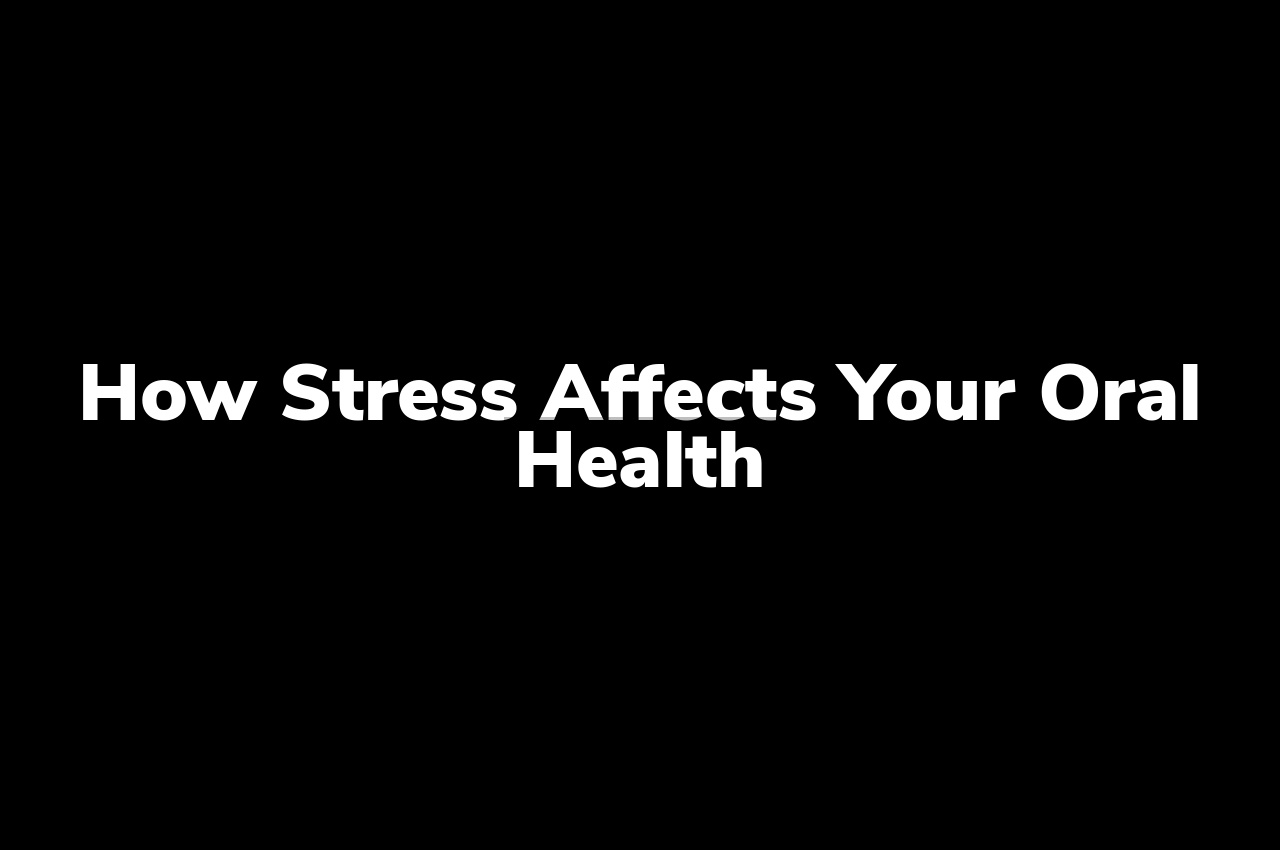December can be a busy month for many people. From holiday planning to end-of-year work tasks, stress can build up quickly. But did you know that stress affects more than just your mood? It can actually impact your oral health, too.
How Stress Impacts Oral Health
When you’re stressed, your body goes into “fight or flight” mode, which can lead to several health issues, including problems with your teeth and gums. Here’s how stress can affect your oral health:
- Teeth Grinding (Bruxism)
Many people clench or grind their teeth when they’re stressed. This habit, called bruxism, can lead to:
-
- Worn down or chipped teeth
- Jaw pain and stiffness
- Headaches and earaches
- Gum Disease (Gingivitis or Periodontitis)
Stress can weaken your immune system, making it harder for your body to fight off infections. This can increase your risk for gum disease, which can cause:
-
- Swollen, red, or bleeding gums
- Receding gumline
- Loose teeth
- Dry Mouth
Stress can sometimes reduce saliva production, leading to a dry mouth. Saliva helps wash away bacteria and food particles from your teeth, so a lack of it can increase your risk of:
-
- Tooth decay
- Gum disease
- Canker Sores
Stress doesn’t cause canker sores directly, but it can make them more likely to occur. Canker sores are small, painful spots inside the mouth that can make it uncomfortable to eat or speak.
Signs of Stress-Related Oral Health Issues
If you’re experiencing any of these issues, it might be time to take a closer look at your stress levels and how they could be affecting your oral health. Here are some signs to watch for:
- Frequent jaw pain or headaches
- Broken, chipped, or worn-down teeth
- Gums that bleed when you brush or floss
- Dry or sticky feeling in the mouth
- Painful spots inside your mouth (canker sores)
If you notice any of these symptoms, make an appointment with our dentist in Columbia. They can help identify the cause and suggest treatments or lifestyle changes to protect your smile.
Tips to Protect Your Oral Health During Stressful Times
While stress can sometimes be unavoidable, there are ways to protect your teeth and gums during busy times. Here are some tips for reducing stress and protecting your oral health:
- Practice Good Oral Hygiene
-
- Brush twice a day with fluoride toothpaste
- Floss once a day to remove food and plaque between teeth
- Use mouthwash to keep your mouth feeling fresh and clean
- Visit our dental office in Columbia regularly for check-ups and cleanings
- Try Stress-Relief Techniques
Finding ways to manage stress can help reduce the impact on your oral health. Some easy techniques include:
-
- Exercise: Physical activity is a great way to reduce stress and boost your mood.
- Deep Breathing: Practicing deep breathing can help calm your mind and body.
- Relaxation Techniques: Try meditation, yoga, or even a warm bath to help your body unwind.
- Be Mindful of Teeth Grinding
If you grind or clench your teeth, ask us about a mouthguard. Wearing a mouthguard at night can protect your teeth from damage and relieve pressure on your jaw.
- Watch Your Diet
When you’re stressed, it’s tempting to reach for sugary snacks or caffeinated drinks. However, these can harm your teeth by causing decay or staining. Try to:
-
- Choose healthy snacks like fruits and vegetables
- Drink water to stay hydrated
- Limit sugary drinks and caffeine
- Make Time for Self-Care
Taking time for yourself can help reduce stress. Schedule a few minutes each day to do something you enjoy, like reading, listening to music, or spending time with family and friends.
When to See a Dentist
If you’re feeling stressed and notice any changes in your oral health, don’t wait to schedule an appointment with us. Regular dental visits are essential for catching potential issues early and keeping your mouth healthy.
Stress can be a big part of life, especially during the busy holiday season, but it doesn’t have to harm your oral health. By taking steps to manage stress and practicing good dental hygiene, you can keep your smile looking bright and healthy.

